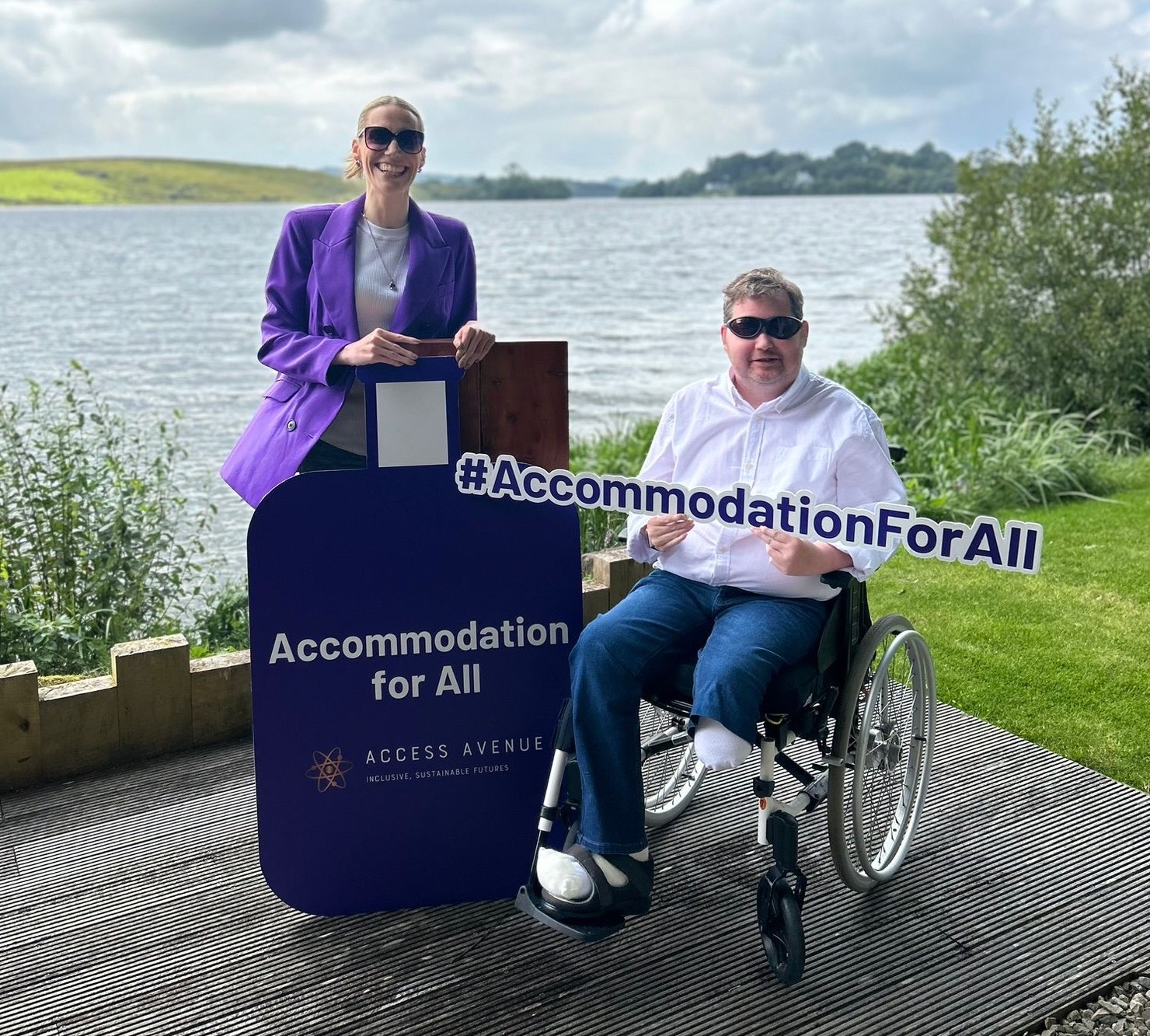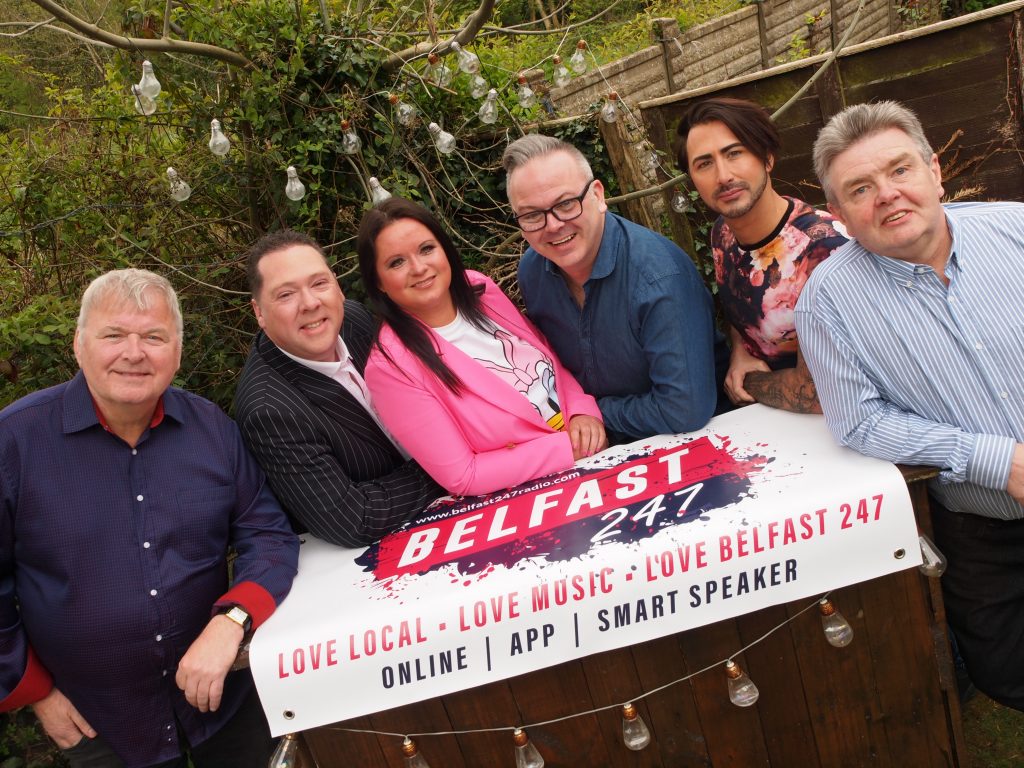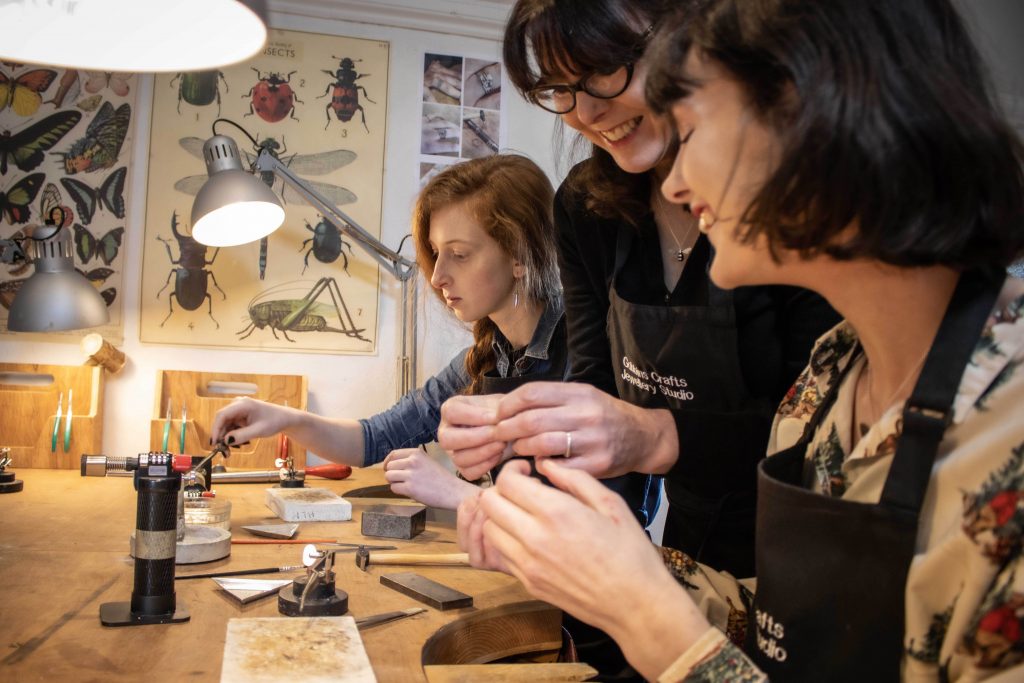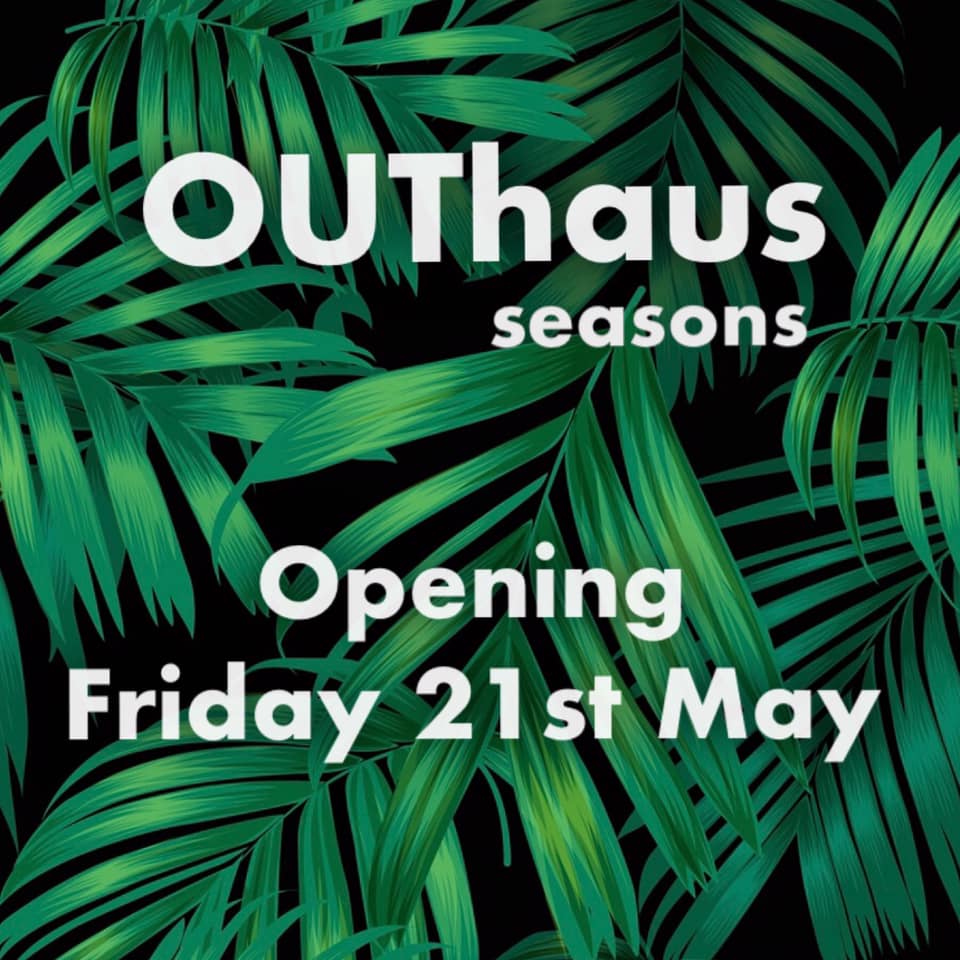A Northern Ireland disability rights campaigner has launched a new initiative that will allow wheelchair users to enjoy ‘all inclusive’ accessibility at local hospitality venues and hotels.
Shelley Cowan, from Enniskillen, was confined to bed, tube fed and unable to use her limbs for 12 years as a result of severe ME and spent a further decade as a wheelchair user.
She is now using her lived experience and research findings into the ‘purple pound’, the spending power of disabled people and their families, to help make all venues accessible with her campaign #accommodationforall.
She said: “When people think of ‘all-inclusive’, they think of ‘all you can eat’ food and drink. I want it to mean that hotels and venues are fully accessible for all.
“In 2024, it is shameful that there are not adequate facilities available for everyone. I know of people who have had to sleep on pool loungers at hotels because the hotel rooms aren’t accessible.
“Negative hospitality attitudes are commonplace, causing guests with severe disabilities to feel humiliated, ignored, unwanted and a nuisance. It isn’t good enough.”
Placing her passion into a project, Shelley founded Access Avenue, a business venture which she hopes will help people with disabilities to be included in society.
Speaking on her first-hand experience of the difficulties that disabled tourists are forced to accept, Shelley said: “I was a wheelchair user and it was following personal experience of ineffective hospitality venues that I researched the area to improve accessibility within hospitality and tourism.
“I want everyone to have the opportunity to fully participate and explore equal, effective, enjoyable experiences – the campaign follows these 5E’s.
“For me, as a wheelchair user, travelling was inaccessible, unaffordable and too cumbersome to gain any real benefit from the experience.”
Speaking on the shocking conditions that guests with disabilities are faced with due to hotels frequently exaggerating their accessibility status, Shelley said her research concluded that: “75% of tourists with severe physical disabilities perceive current hotel venue barriers as excessive, increasingly difficult or unreasonable to navigate.
“50% of tourists with severe disabilities bring, purchase or rent their own heavy, expensive hoisting devices to be able to stay in hotels.”
Shelley herself shared that she fit into this category: “I had to purchase and transport a portable hoist, blow-up pressure relieving mattresses for myself and a mattress for a carer.”
To combat this, Shelley created the ‘Hotel Accessibility Grading Classification’, a system which aims to help guests understand the level of accessibility within certain venues.
From today, her outlined plan to work with hospitality providers in an attempt to equip them with the knowledge and skills on how they can change their premises in a positive move towards being more accessible is underway.
Shelley has previously conducted research into the problems faced by those with disabilities as part of her MSc in International Business.
The findings highlight major failings for people with disabilities and vast access barriers within the hospitality sector in the country, including how, despite there being hundreds of pet-friendly accommodation options in the UK, there are only 17 fully accessible hotels for disabled guests to choose from, with zero of these being found in Northern Ireland.
Shelley believes that her personal experience as a wheelchair user for ten years, and throughout her illness has fitted into all three categories of the grading system, has offered a unique insight into the daily barriers faced by those who have disabilities, developing a fail-proof of adequate provision for the hotel industry.
Shelley said: “Overall, Northern Ireland hotel accessible offerings are limited, basic, impractical and inadequately designed, however this was found to also be a global issue.
“Hospitality, particularly hotels, lose millions of pounds due to inaccessibility-related non-participation.
“To be able to stay away from home for even one night took weeks of rigorous planning and several phone calls to the hotel to ensure the venue and facilities were suitable for my needs.
“The majority of rooms were not spacious enough to manoeuvre and use the equipment safely.”
Having conducted numerous interviews with domestic and international wheelchair-using tourists, Shelley discovered they find accommodation providers in Northern Ireland inadequate, inaccessible and unavailable for the severely disabled.
Shelley said her findings show that this is a regional, national and global issue, impacting the tourism industry, and she believes that accommodation providers lose millions of pounds annually due to inaccessibility-related non-participation.
She said: “Hotel guests with disabilities want fair, equal service and prices comparable to other guests.
“Guests with disabilities want barrier-free travel with accommodation as stated. We want to enjoy hotels as much as anyone else.”
The purple pound is the spending power of disabled households, currently valued at £274 billion per year in the UK alone and $8 trillion globally; £12 billion of the former figure is in accessible tourism, signalling the potential that hospitality companies are excluding by ignoring this demographic.
Rounding off her remarks with advice for the sector, Shelley Cowan said: “I believe accommodation providers with full accessibility will benefit from an increase in trade from the ‘purple pound’.
“It’s a win-win situation for everyone if we work together.”
For more information about the Accommodation for All campaign by Access Avenue go to accessavenue.co.uk and use the hashtag #accommodationforall





